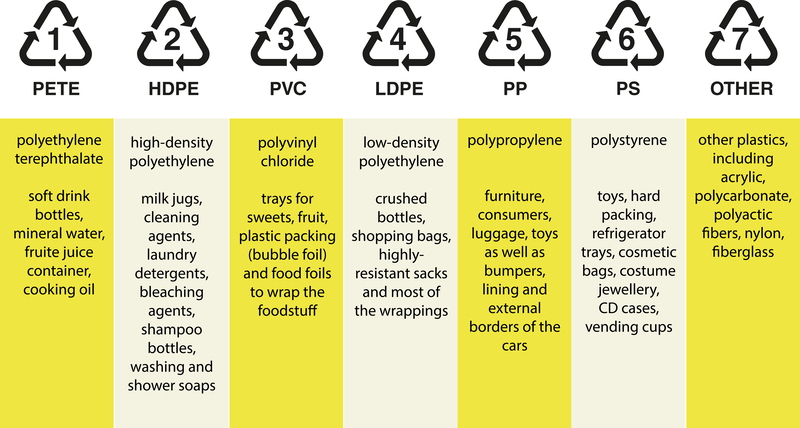Boosting Eco-friendly Habits at Work
Posted on 10/10/2025
In today's world, boosting eco-friendly habits at work has evolved beyond a passing trend and has become a necessary shift toward sustainability. Companies are increasingly aware that sustainable office practices not only help the planet but also positively impact staff well-being and brand reputation. If you're seeking effective ways to foster green habits in the workplace and cultivate an environmentally conscious office culture, you're in the right place. This comprehensive guide outlines practical, impactful actions every organization can take to embrace eco-friendly habits at work.
Why Prioritize Eco-Friendly Habits at the Workplace?
Fostering environmentally friendly behaviors at work brings several compelling benefits:
- Reduced Carbon Footprint: Offices account for significant energy use and waste production. Adopting sustainable habits helps minimize these impacts.
- Enhanced Employee Engagement: Green workplaces often have more engaged employees who appreciate purpose-driven corporate culture.
- Cost Savings: Energy and resource efficiencies directly lower operational costs.
- Positive Brand Image: Eco-conscious initiatives boost your company's reputation among customers, investors, and stakeholders.
- Regulatory Compliance: Sustainable office practices help meet governmental guidelines and avoid penalties.

Practical Strategies for Boosting Eco-friendly Habits at Work
Here are comprehensive strategies and actionable tips to encourage sustainable habits in the office and foster a greener workplace.
1. Adopt a Paperless Office Approach
Over-reliance on paper is an outdated, resource-intensive habit. Transition toward a paperless office with these actions:
- Digital Document Management: Use cloud-based sharing tools for editing and distributing documents instead of printing.
- Electronic Signatures: Implement electronic signature solutions to eliminate the need for paper contracts.
- Paper Use Policies: If printing is necessary, set printers to double-sided printing by default. Use recycled paper where possible.
- Shred & Recycle: Establish bins for confidential shredding and recycle all discarded paper.
2. Reduce Energy Consumption
Boosting energy efficiency at work saves resources and money. Here's how to embed this eco-friendly habit into your office routine:
- Switch Off Policy: Encourage staff to turn off computers, lights, and equipment when not in use--especially before leaving for the day.
- Smart Lighting: Install LED bulbs and motion sensors to automatically dim or shut off lights in unused spaces.
- Energy Efficient Devices: Purchase appliances and electronics with Energy Star certification or other efficiency labels.
- Encourage Natural Light: Arrange desks near windows and draw curtains open during daylight hours to reduce dependence on artificial lighting.
3. Green Your Office Supplies and Equipment
Make sustainable procurement a priority by choosing eco-friendly office supplies. Here are smart switches:
- Recycled Materials: Use recycled and biodegradable stationary--like pens, folders, and sticky notes.
- Bulk Ordering: Purchase in larger quantities to minimize packaging waste and carbon emissions from shipping.
- Refillable Items: Switch to refillable ink cartridges and pens instead of disposable alternatives.
- Furniture Choices: Opt for second-hand or sustainably sourced furniture, or donate unwanted items rather than discarding them.
4. Enhance Recycling and Waste Management
Implement robust recycling systems at work to make waste reduction second nature:
- Clearly Labeled Bins: Position labeled recycling bins for paper, plastic, metal, glass, and e-waste throughout the office.
- Composting: Set up a compost container for organic waste in kitchen or break areas.
- Zero-Waste Events: Use reusable dishware and avoid single-use products at meetings and staff gatherings.
- Supplier Partnerships: Collaborate with suppliers who have take-back schemes for printer cartridges and electronics.
5. Reduce Water Usage
Conserving water is another key aspect of boosting sustainable office habits. Easy-to-adopt solutions include:
- Install Low-Flow Fixtures: Fit taps and toilets with water-saving designs to reduce overall consumption.
- Fix Leaks Promptly: Encourage reporting and speedy repair of leakages.
- Reusable Water Bottles: Provide branded reusable bottles or glasses to minimize plastic cup and bottled water usage.
- Awareness Campaigns: Use posters and digital reminders to foster _mindful water habits_ among employees.
6. Encourage Green Commuting
Transportation is a major contributor to workplace emissions. Support sustainable commuting through these steps:
- Promote Public Transport: Provide transit subsidies or passes for employees choosing subways or buses.
- Carpooling and Ride-Sharing: Facilitate carpool programs, matching colleagues traveling similar routes.
- Bicycle Facilities: Install secure bike racks and changing rooms for cycling staff.
- Remote and Flexible Work: Embrace hybrid or remote work policies to reduce travel emissions.
7. Green Up Your Workspace
Adding greenery not only beautifies the office but also boosts air quality and psychological well-being. Consider these ideas:
- Office Plants: Decorate common areas and desks with air-purifying houseplants.
- Green Walls: Install living plant walls for an impressive eco-friendly feature.
- Outdoor Green Space: Develop company gardens or outdoor seating for breaks and informal meetings.
Creating a Sustainable Office Culture
Technical steps alone aren't enough--long-term eco-friendly habits in the workplace require a culture shift. Here's how to nurture ongoing engagement:
Lead by Example
Organizational leaders should model sustainable choices--using reusable cups, participating in recycling, or biking to work. Visible commitment from management inspires collective action.
Employee Education & Involvement
- Sustainability Workshops: Offer interactive training covering recycling methods, green commuting, or energy-saving techniques.
- Green Teams: Create employee-led groups responsible for brainstorming and implementing new eco initiatives.
- Incentivize Eco-friendly Actions: Acknowledge departments or employees making a positive sustainability impact via awards or recognition programs.
Regular Communication
Maintain momentum by:
- Sharing Progress: Publish regular updates on energy savings, waste reduction, and environmental milestones across company newsletters or digital platforms.
- Feedback Mechanisms: Encourage staff suggestions to improve offices' sustainability strategies.
Engage Your Suppliers and Partners
Extend eco-friendly practices by choosing vendors who embrace sustainability. Assess their use of packaging, waste management protocols, and energy policies before committing to long-term collaborations.
Measuring the Impact of Green Initiatives at Work
To truly boost eco-friendly efforts at work, tracking progress is crucial. Use these measurement tactics:
- Conduct Regular Audits: Evaluate waste produced, recycling rates, and energy usage with scheduled assessments.
- Set Measurable Goals: Define clear targets--for example, "reduce paper use by 50% in six months" and monitor outcomes.
- Solicit Staff Feedback: Survey employees to gauge involvement and identify areas needing more support.
- Report & Celebrate Successes: Publicize key wins and milestones to keep motivation levels high.
Common Workplace Sustainability Challenges & Solutions
Shifting to a greener workplace isn't without hurdles. Here are some obstacles--and how to overcome them:
- Lack of Awareness: Solution: Implement ongoing education and visual reminders throughout the office.
- Limited Resources: Solution: Start small--focus on low-cost changes like switching off lights and reducing paper use before making major investments.
- Employee Resistance: Solution: Involve staff in planning and recognize eco-friendly contributions to foster buy-in.
- Inconsistent Follow-Through: Solution: Assign roles to "green champions" who drive accountability for daily habits.
Case Study: Companies Excelling at Eco-friendly Habits
Leading companies around the world have already mastered the art of boosting green initiatives at work:
- Google: Centralized waste bins, aggressive energy-saving programs, and onsite food composting are standard across their campuses.
- Salesforce: Their "Ohana Floor" workspaces are powered by renewable energy and initiatives such as green building certification.
- Interface: The modular flooring company reduced emissions by using recycled materials and maximized daylight in all offices.
- PWC: Paperless policies, robust recycling, and hybrid working are part of their commitment to a greener office environment.
Future Trends for Green Offices
Boosting eco-friendly workplace habits is set to become even more vital. Here's what the next decade may hold:
- Smart Building Technology: Offices will use IoT to monitor and reduce energy use in real time.
- Net Zero Buildings: More companies will aim for carbon-neutral offices with solar panels, green roofs, and advanced materials.
- Holistic Wellbeing: The link between sustainability and employee wellness will shape office design and policies.
- ESG Integration: Environmental, Social, and Governance criteria will guide investments and organizational strategies.

How Every Employee Can Make a Difference
Sustainable offices aren't built by policy alone--every individual's choices matter. Simple steps for employees include:
- Bring Your Own: Use reusable mugs, containers, and utensils to minimize waste.
- Think Before Printing: Double-check if you really need a hard copy.
- Power Down: Shut down monitors and unplug chargers at day's end.
- Advocate: Suggest new green ideas and encourage team participation in sustainability activities.
Conclusion: Championing Eco-friendly Habits at Work for a Greener Future
By boosting eco-friendly habits at work, organizations not only reduce their environmental footprint but also build a resilient, motivated, and forward-thinking workforce. Start small, engage everyone, and measure progress--the positive effects will ripple through your business and beyond. With a commitment to sustainable office habits, the modern workplace can become a powerful force for environmental stewardship and change.
Ready to take the next steps? Assess your current practices, set green goals, and inspire your team to make your office a beacon of sustainability!
Latest Posts
Mini Skips Uncovered: The Basics
Steering Clear of Harmful Plastics: What You Need to Know
Maximize Your Recycling at Home with Simple Suggestions
Breathe New Life into Style: Smart Clothes Recycling Solutions







